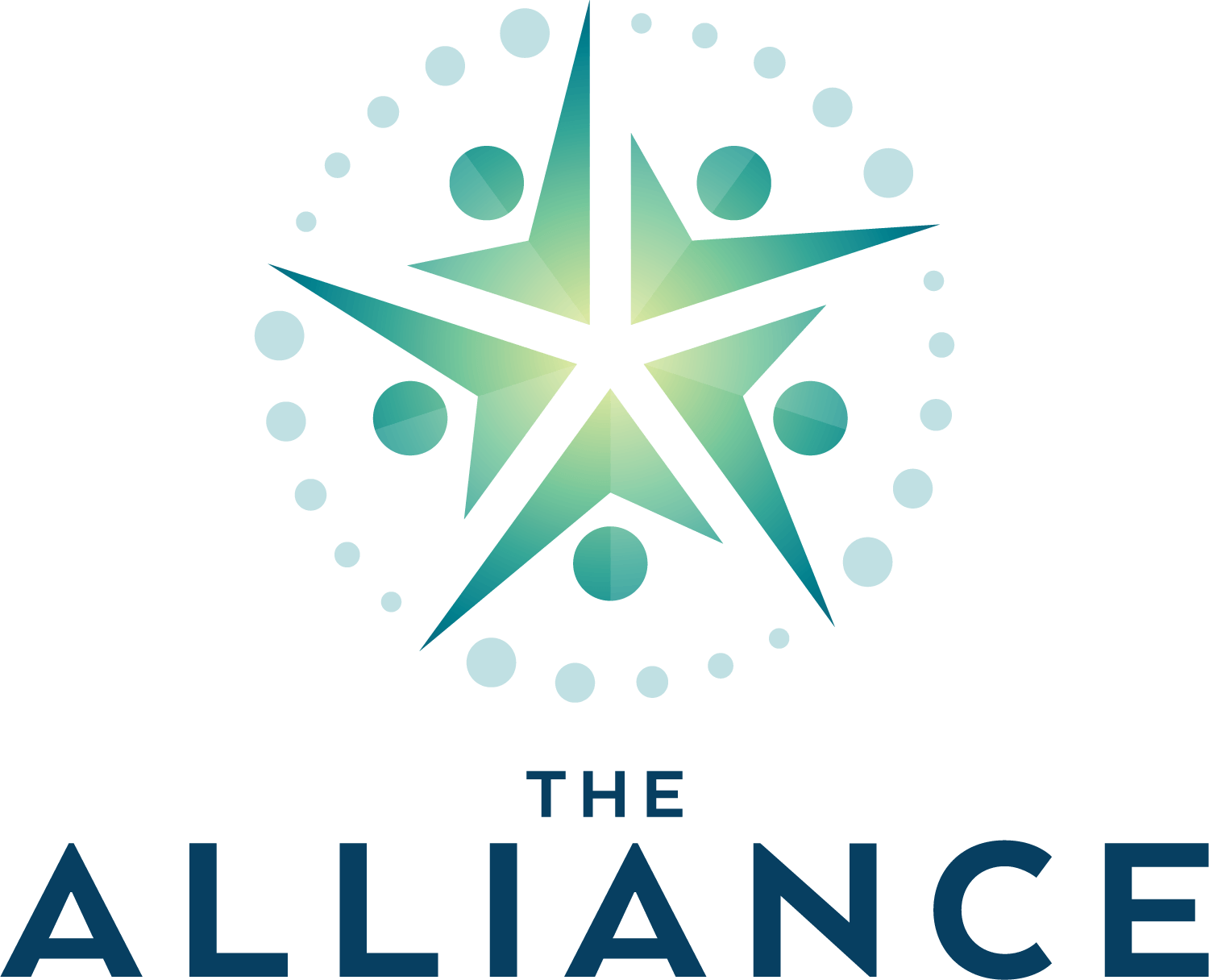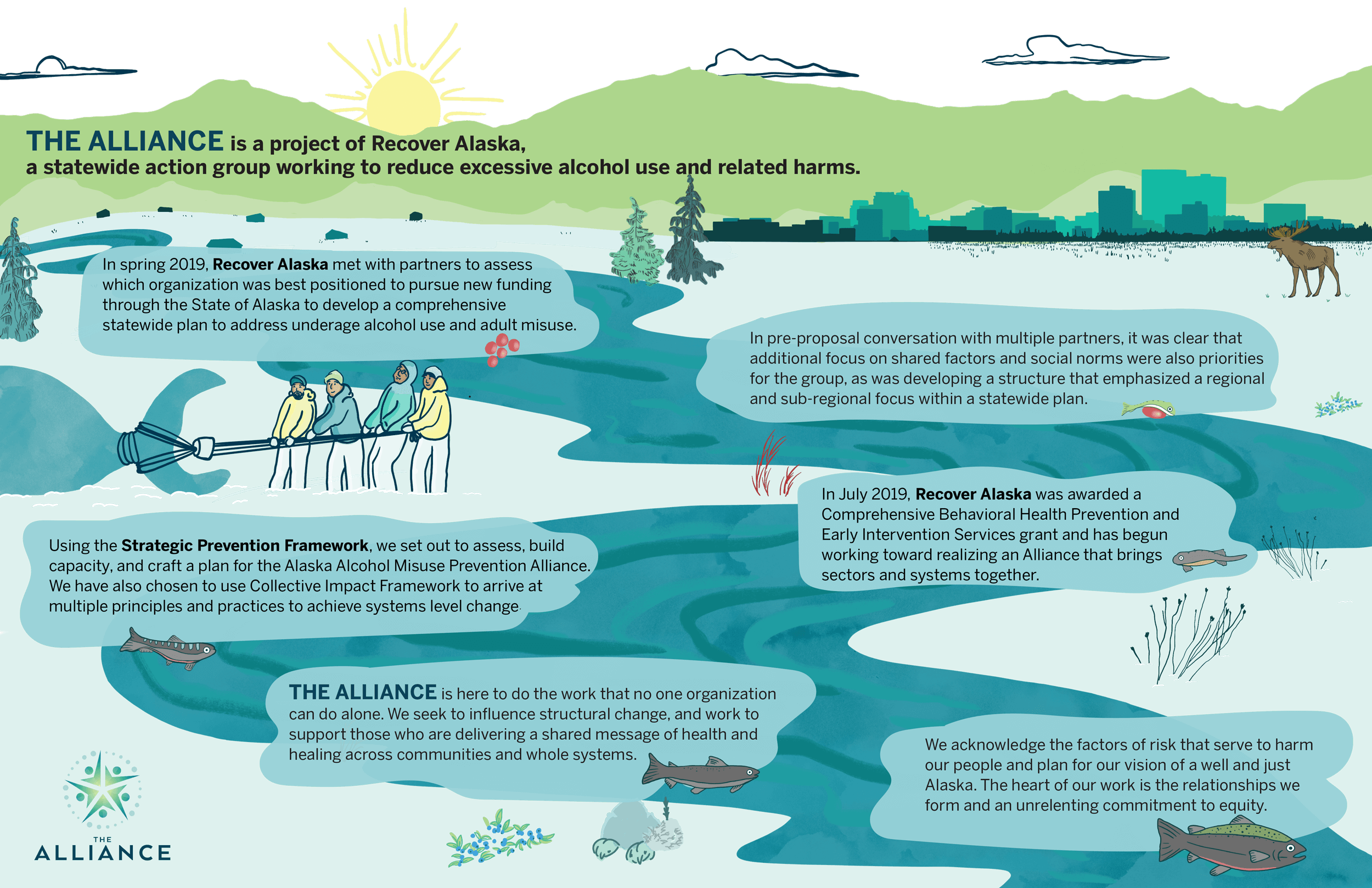Our Journey Here
The Alliance has had a unique journey since forming in 2019, which we outline below. We invite you to review our Emergent Strategies document, which tells the story of how The Alliance was formed.
Moving Upstream: Recognizing the Need
In Alaska, alcohol misuse has been a persistent challenge since the arrival of European-American colonizers, with lasting impacts from historical trauma affecting communities across the state. For too long, the response has been focused downstream—addressing the consequences rather than the root causes.
By 2011, a statewide needs assessment identified alcohol misuse prevention as Alaska's number one priority. Yet despite this recognition, coordinated statewide efforts remained fragmented. Michael Powell from the Alaska Department of Health realized that while tobacco prevention had succeeded through a unified alliance approach, alcohol misuse prevention lacked similar coordination. The vision was clear: "What I knew about how this process would work [was that it] would be a lot of trailblazing."
A Novel Approach Takes Root
In fall 2019, Recover Alaska was awarded a Comprehensive Behavioral Health Prevention and Early Intervention Services Grant to coordinate Alaska's first comprehensive statewide approach to alcohol misuse prevention. But this wouldn't be a traditional alliance.
The Alliance chose to blend the proven Collective Impact Framework with Emergent Strategy—a revolutionary approach developed by Adrienne Maree Brown that focuses on "how we intentionally change in ways that grow our capacity to embody the just and liberated worlds we long for."
This meant embracing:
- Non-linear and iterative processes that allow for exploration and adaptation
- Consent-based decision-making that honors every voice
- Equity at the center, with intentional representation from rural communities and Alaska Native peoples
- Bringing whole selves to the work, not just professional personas
- Addressing root causes through transformative justice approaches
Building the Foundation: 2019-2021
The Alliance's first years were dedicated to relationship-building and developing their Common Agenda—the foundational document that defines their strategic direction around building relationships, building power, and building shared meaning.
As contractor Rebecca Van Wyck reflected: "Often times grants are thrown at people with three years and some new plan is rolled out and it's not successful, and there's no sustainability because the relationships are not there—not just people who I can get to sign an MOA because of our professional connections, but real human connections."
This intentional foundation-building created something unprecedented: a network spanning Alaska's vast geography, bridging urban centers and rural communities, state agencies and grassroots organizations, prevention professionals and community members with lived experience.
The Milestones Are Coming
Today, The Alliance represents a powerful model for systems change—not just in Alaska, but for communities nationwide grappling with complex social challenges. As member Eva Gregg says: "[The Alliance] is young, but it's powerful and I think the milestones are coming. They are coming... But true milestones will come when the work really starts to influence and help people out of alcoholism."
The Alliance's emergent strategy has created new possibilities for collaboration, broken down longstanding silos, and centered equity in ways that honor Alaska's diverse communities. Members describe being "more thoughtful" in their work, carrying Alliance principles into their own organizations and communities.
Most importantly, The Alliance demonstrates that when we bring our whole selves to complex challenges, when we center relationships and equity, and when we're willing to do the slow work of building trust—we can create the conditions for profound, lasting change.
Our journey continues, guided by the belief that there is something calling us from the future, and our work is for the benefit of future generations.

